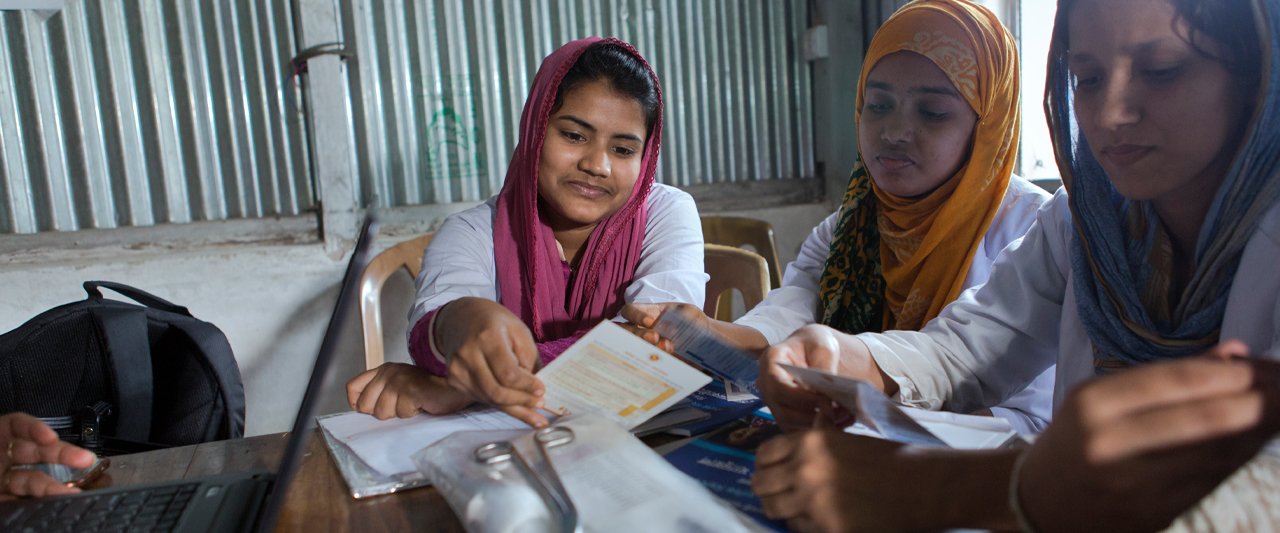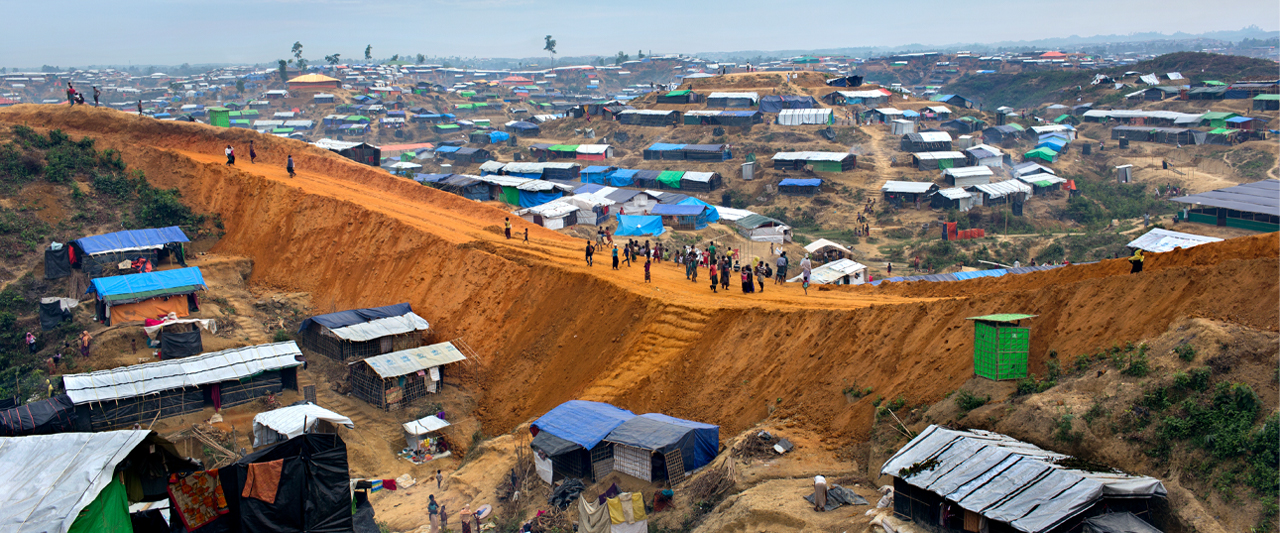
© Farzana Hossen
In refugee camps in Cox’s Bazar, Bangladesh, where there is an acute need for reproductive health care, Ipas has trained midwives and other health professionals on how to provide safe abortion and treatment for complications of unsafe abortion.
In Bangladesh, Ipas supports 28 health care facilities for Rohingya refugees in the Cox’s Bazaar district, one of the world’s largest refugee camps. For the 900,000 refugees living in the camps, these facilities provide access to family planning services, postabortion care and essential and legal abortion services— known as menstrual regulation (MR) in Bangladesh.
The humanitarian response directive for the Rohingya camps initially did not designate MR as a “critical” service, which led to the temporary suspension of MR services at six of the camps. Travel restrictions were also imposed and only people working in critical services were able to travel. This meant that, at the remaining 22 Ipas-supported clinics, health-care providers were required to sleep away from their families, in or near the clinics, in order not to break the camp’s travel ban so that they can continue offering refugees reproductive health services.
But after weeks of advocacy by Ipas Bangladesh, all clinics are once again in operation. The Refugee Relief and Repatriation Commissioner and the WHO office in Cox’s Bazaar have recognized reproductive health care workers in the facilities as critical providers and have issued vehicle passes to them so they can continue to provide reproductive health services to Rohingya women and girls.
Ipas Bangladesh has been working to provide Rohingya refugees with reproductive health services, including menstrual regulation since 2017. It is important to ensure these services continue to be available during the COVID-19 pandemic and we are pleased that the government has recognized that reproductive health services are critical to the health and well-being of women.”
DR. SAYED RUBAYET, Ipas Bangladesh Director



